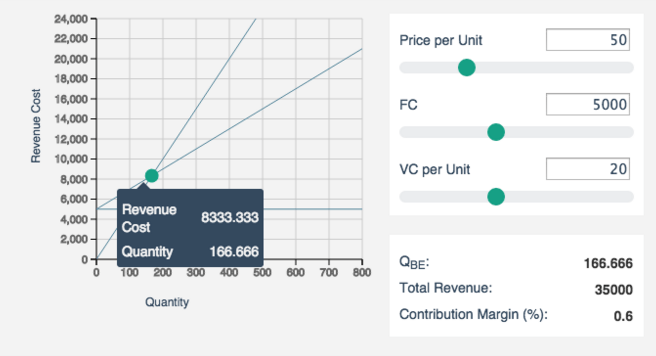Intro
In July 2013, a Saint Leo University instructional designer used Smart Sparrow’s learning design platform to design adaptive and real-world focused lessons for a Principles of Marketing online course. The university has used the platform to develop personalized, simulation-based courses to better prepare marketing students for careers in business and marketing. Today, over 350 students have taken the course and through a controlled study, Saint Leo has observed that these students have higher rates of success than students taking a non-adaptive course.
Challenge
The instructional designer had been actively looking for innovative ways to educate students and meet their needs at varied academic levels. Likewise, professors at the University were looking for ways to provide personalized instruction that was rooted in real-world application and practice of key concepts and skills. Saint Leo’s main goal was for students to practice the knowledge acquired in a controlled environment.

Solution
Saint Leo decided to test the model with a current online course that fit well with a simulation-based learning model and worked with Smart Sparrow to identify the concepts taught in the course that were most appropriate to teach in an rich, interactive and adaptive manner. Four concepts were selected to be taught over the course of four weeks. These concepts were built into lessons as an additional activity for each of the lessons selected.

Saint Leo built the first lesson with the support of a Smart Sparrow instructional designer. Over time, Smart Sparrow trained the instructional designer to use the authoring platform on their own, which allowed them to develop subsequent lessons.
The lessons provided a real-world scenario examining an entrepreneur as he created a marketing plan for his company. At each step, students answered questions about what they would do or the best decision that the entrepreneur could make. Each lesson was grounded in reality through narrative based adaptive lessons and contained learning by doing activities that reinforced the content being taught in the class. Simulations were used so students could better understand the intuitive concepts of marketing. The Saint Leo team found the Smart Sparrow platform to be very intuitive, which allowed him to create and customize the lessons continuously. This allowed Saint Leo to incorporate its own content and learning objectives, which was a big win as they design and develop courseware in-house. After students completed the adaptive lesson, Smart Sparrow’s analytics tools allowed the faculty to identify gaps in student understanding and monitor student progress in remediation.
Results/Benefit
As part of the grant from the Bill and Melinda Gates Foundation’s Adaptive Learning Acceleration Program, Saint Leo had to complete a study on the effectiveness of adaptive learning. The study covered eight academic terms (8 weeks per term) with control and treatment courses. Both courses had the same course content and assessments, but the treatment course had four adaptive learning scenarios embedded in their coursework.
Over the course of eight academic terms with eight weeks per term, control and treatment courses were run by the faculty at Saint Leo. It was found that on average, there was a 4% increase on objective assessment scores. Regarding final grades, 16% more students raised their grades from a C to a B (control = 12% increase from C to B; treatment = 28% increase from C to B).
It was also found that several levels of adaptive feedback paths were taken by students. Based on the level of adaptivity utilized, lower performing students were quickly remediated to a competent level.
Student feedback
“It made you think through a scenario and make choices that the text book does not do.”


